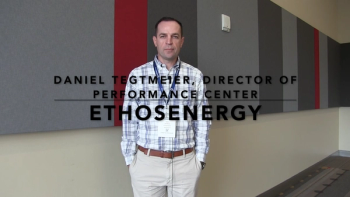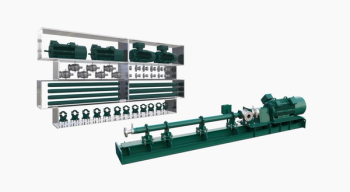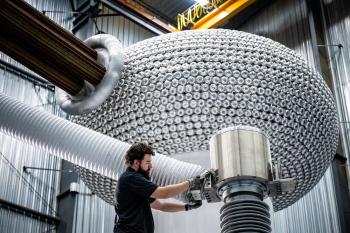
GE Renewable Energy debuts high-speed blade inspection system
At Blade O&M Forum in Dallas, GE Renewable Energy announced the availability of a new ground-based blade inspection system, combining thermal imaging technology and wide-band acoustic spectral analysis to detect anomalies on blades across an entire wind fleet, including both GE and non-GE turbines. The system will enable GE's customers to manage blade assets more proactively and has the proven potential to reduce blade O&M costs by up to ~25%.
The GE system is patented and self-contained, providing real time data analytics on turbine health fast and safely. This method reduces the need for up-tower inspections leading to safer and less-costly repairs, and also does not require wind assets to be powered down for a prolonged period. To date, more than 1500 turbines have been inspected using this technology. On average, the inspection time per unit is under 15 minutes.
Staged at the base of a wind turbine, the inspection technology takes a series of recordings of the blades as they are turning and under active load. This produces a real-time view of the subsurface health of a blade, layered with advanced digital image analytic capabilities that read and detect a wide range of anomalies. Additionally, certain blade anomalies under rotation produce a distinct sound, which the system detects and analyzes to pinpoint the specific location of the anomaly.
"Wind turbine blade inspections have come a long way. Ground scopes, drones, and tap testing are just a few of the methods that operators have used to help prevent against failures both small and catastrophic," explained Anne McEntee, CEO of Digital Services. "But most down-tower blade inspections are limited to showing what's happening with the surface of a blade. Many of the issues that lead to larger failures are deeper within the blade itself. This is where our inspection technology truly excels. The ability to also look beyond the exterior coating of the blade, regardless of manufacturer, marks a significant advance in blade inspection technology for the entire wind industry."
The system can detect a range of defects harmful to blade function including fatigue cracks, fiber waves, delamination, bonding issues, breaking or missing adhesive joints, splits and defective repairs. As the images are gathered, a combination of artificial intelligence algorithms and deep expertise in physical models/turbine engineering help teams conduct an in-depth analysis of the overall health of the blades. This service is currently available through GE Renewable Energy Services in the North American region and will be extended to other regions in the coming months.
Newsletter
Power your knowledge with the latest in turbine technology, engineering advances, and energy solutions—subscribe to Turbomachinery International today.




